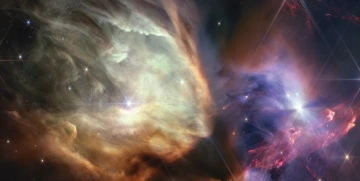
The Rho Ophiuchi cloud complex, imaged by the James Webb Space Telescope, is among many disruptive discoveries that have “transformed humanity’s
view of the cosmos” per NASA administrator Bill Nelson.
NASA, ESA, CSA, STScI, Klaus Pontoppidan (STScI)
What was the last scientific breakthrough that really shook things up? If one doesn’t spring to
mind, you’re not alone. New research finds that even as the volume of published science continues
to swell, the work behind it is less and less disruptive.
This discovery raises an alarm: while we urgently need innovation in fields from medicine to food
security, the systems that reward today’s scientific endeavors may be making trailblazing less likely.
Professor Erin Leahey in the University of Arizona College of Social and Behavioral Sciences joined
researchers from the University of Minnesota to gather data on 49 million patents and scientific
papers over the past 60 years, and used computational techniques to analyze their citation patterns. Their goal was to understand how papers and patents influence knowledge flows.
They found that scientists are working with increasingly narrow slices of knowledge in a trend toward incrementally consolidating earlier work – better versions of earlier equations, for example, versus the revelation of DNA’s double-helix.
To promote more disruptive science, researchers suggest that universities focus more on quality over quantity and consider ways to allow scholars time to keep up with expanding knowledge frontiers. They also suggest funding agencies invest more in awards that support careers, not just projects, enabling scholars to produce higher impact work.
